Inside a dimly lit shanty tucked behind Abuja’s National Stadium, 14-year-old Salvation Alex bends over her worn-out sneakers, tightening the frayed laces with quiet focus. The walls around her – patched with plywood and torn tarpaulin salvaged from parts of the stadium – barely keep out the cool night air. Her breath fogs faintly in the cold air as she ties the last knot. Crickets hum outside, a chorus to her dreams.
Somewhere within this chaos lives Nigeria’s U-14 tennis champion.
Every dawn, Salvation steps out of this modest home straight onto the court, carrying a dream far larger than her surroundings. For the past four years, this has been her rhythm – one that has shaped both her spirit and her story.
But her rise didn’t begin with trophies or training camps. It began with displacement and that loss became the soil where her new dream would take root.
READ ALSO: Alex Adewale: The Last Nigerian To Play In The US Open Main Draw
Born in Plateau State, a region famed for its rolling hills, cool weather, and natural beauty, Salvation once called the ‘Tin Capital’ of Nigeria home. Yet, beneath the serenity, Plateau has often been torn by ethnic and religious crises. One of those conflicts forced her family to flee to Abuja in search of safety – and by extension, a fresh start.
Life in the capital wasn’t easy. Survival was the first instinct, and all they had were pieces of corrugated sheets picked from different parts of the stadium with which they built their new home. Her father found work as a gardener, her mother as a cleaner inside the stadium. Amidst this daily struggle, fate quietly introduced her to the sport that would redefine her life.
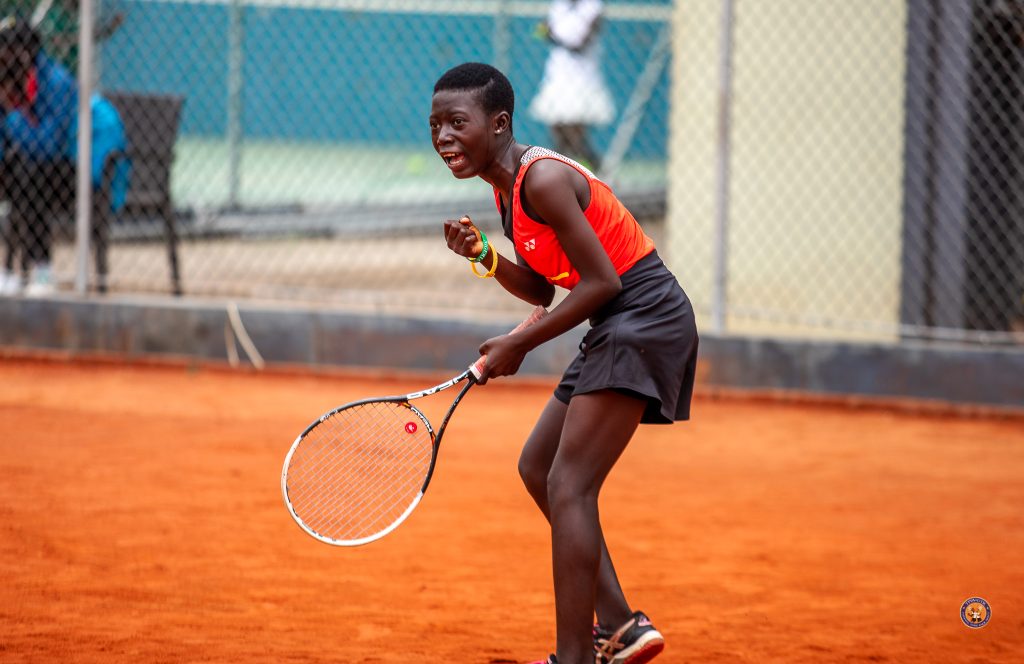
“I was ten when Coach Tobi asked if I wanted to try tennis,” she recalls, her voice soft but sure. “Immediately I got on the court for the first time, I loved it. Since then, there’s been no looking back”.
Four years later, Salvation has become a force on Nigeria’s junior circuit. She’s represented the Federal Capital Territory in major national and regional tournaments, collecting titles she can no longer count. Her composure on court and discipline off it have earned her respect beyond her age.
Now a Senior Secondary School 1 student at Government Secondary School, Garki, Salvation is also the eldest of four siblings. Despite the family’s financial struggles, she holds onto another dream alongside tennis.
READ ALSO: 11-Yr-Old Player Gets N1m Grant After Adewale Isa Tennis Tournament
“I want to be a lawyer,” she says with a shy smile. “Because I want to stand for what is right and just”.
Her father, Nale Dakat, sits quietly beside their makeshift home, his hands roughened by years of manual work. Behind his calm eyes lies a sadness born of displacement and lost comfort.
“The reason we are here,” he says softly, “is that Fulani herdsmen wouldn’t stop disturbing us in our village. Everyone had to run for their lives.”
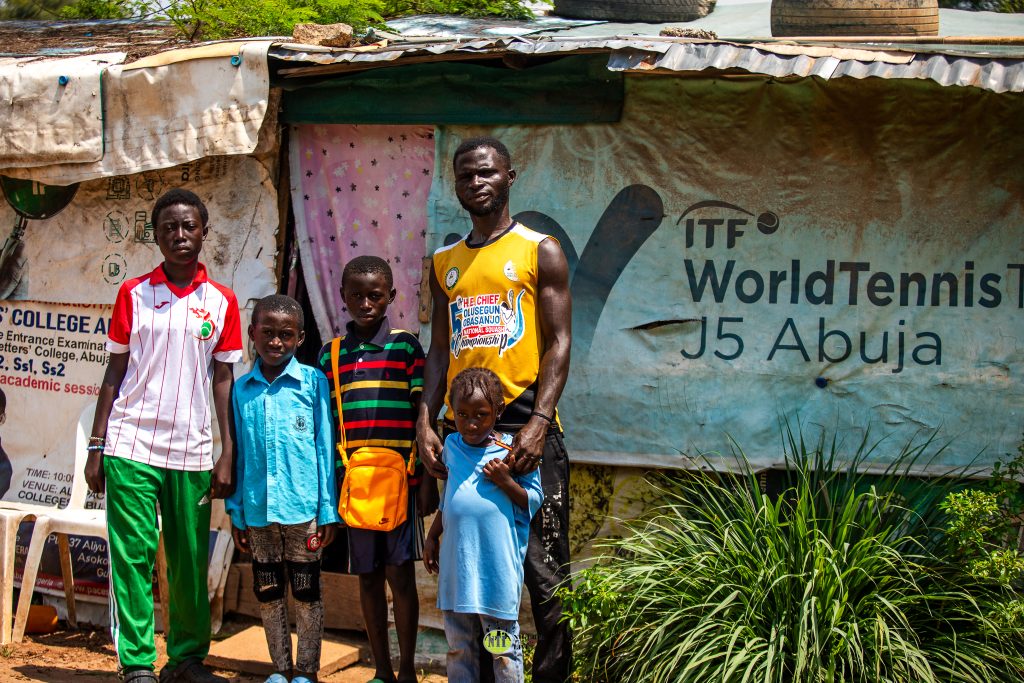
He pauses, staring at the rusted hinges of their makeshift door to their ‘two-bedroom’ apartment. “When I found myself here, I discovered there was a tennis facility nearby, and my daughter Salvation was already in love with the game. She wouldn’t stop going to the courts”.
Then, almost as if he was speaking to himself, he adds: “I’ve never watched her play, but I hear what people say about her – how glowingly they speak of my daughter.
“She’s been to Lagos four times, to Delta, to Plateau… and all I ever hear is good news. I just pray that God continues to uplift her, so she can take us out of this poverty”.
READ ALSO: Adewale Isa Junior Tennis Tourney Set To Immortalize Arinola Isa
His words carry the quiet faith of a man who has little left but hope.
Salvation’s story, however remarkable, is far from unique. It mirrors the daily struggles of countless young athletes across Nigeria – children who lace up borrowed shoes and chase dreams far beyond their surroundings. For every trophy raised, there are nights of hunger, flooded rooms, and uncertain tomorrows.
Just a few shanties away lives Opeyemi Oladimeji, another teenage tennis hopeful. Her family, from Osun State, shares a small corrugated shelter near the stadium. When Nigeria Tennis Live visited, Opeyemi pointed at their little space with a mix of pride and resignation.
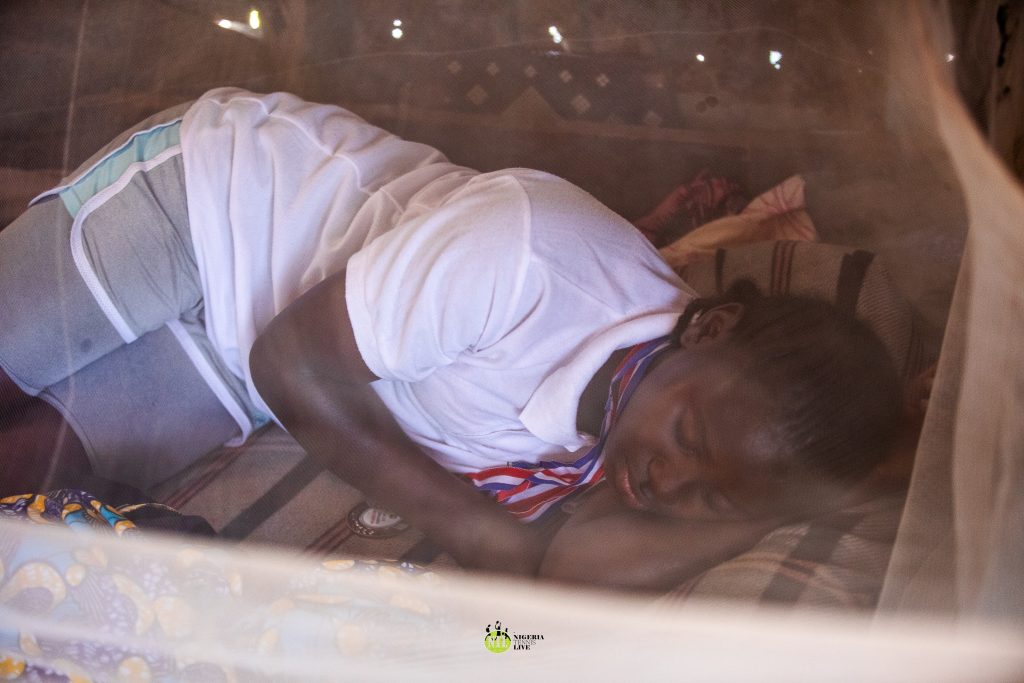
“This is where we live o,” she said, gesturing at the cramped enclosure of plywood and zinc sheets beneath a well-hung mosquito net to protect them from mosquito bites at night. “My mum also works around here, but she’s not around now. We sleep here every day – rain or shine”.
She lets out a small laugh, the kind that hides exhaustion beneath hope, then adds, “When the sun is hot, the iron sheets burn like fire. When it rains, the water finds its way in. But we endure. We have no choice”.
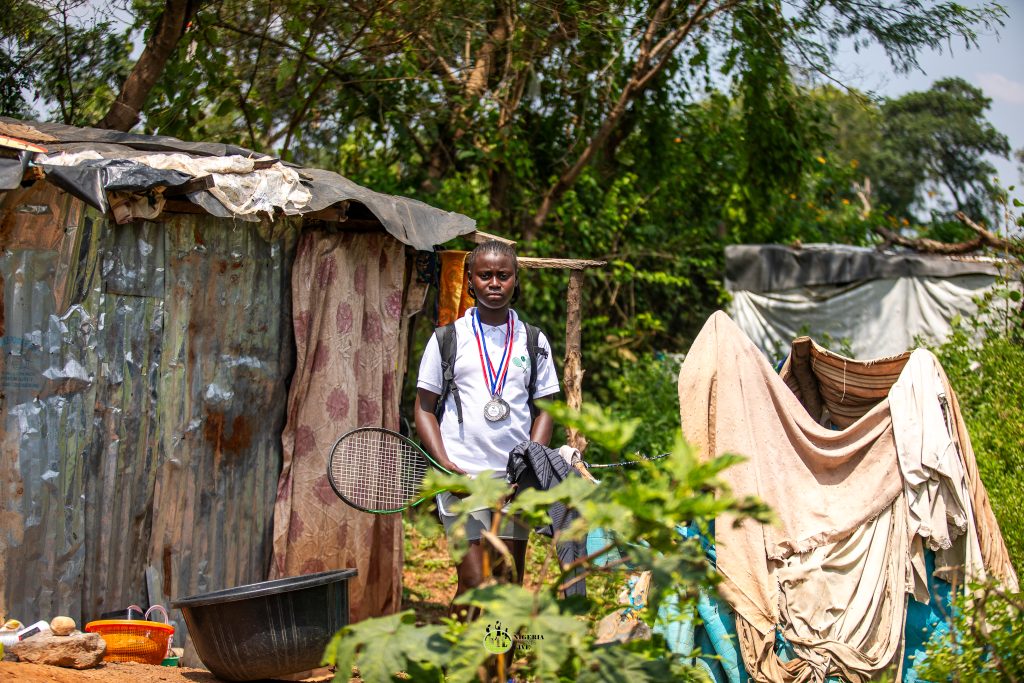
Like Salvation, Opeyemi pins her hopes of a better life on the game she loves. To her, tennis is more than a sport – it is a promise of redemption, a possible bridge between hardship and hope.
Salvation’s coach, Sunday Samuel, remembers the first day he met her. At the time, she was just another little girl darting across the courts as a ball girl – barefoot, curious, and full of energy.
“I’ve known Salvation since she was a kid,” Coach Samuel recalls. “Her mother works here in the stadium as a cleaner, so she was always around. I noticed how she watched the players, how her eyes followed every rally. The interest was natural”.
READ ALSO: ITF Reveals Nigeria’s Davis Cup World Group II Opponent
He smiles, pride softening his voice. “From the moment she picked up a racket to play for the first time, I knew she was special. I took her under my wing and started training her”.
Now, years later, Coach Samuel speaks of her with a mix of admiration and awe. “She’s making waves in junior tennis across Nigeria. She’s calm, very disciplined, and incredibly intelligent on court. Even though she looks a bit frail, she knows exactly what to do. Her tactical awareness – her ability to think through a match – is one of her biggest strengths”.
As head coach of the FCT Tennis Association, Samuel has trained dozens of players, but he admits that Salvation stands out – not just for her talent, but for her humility and resilience. His words echo a truth familiar across Nigeria’s dusty courts – raw talent often blooms where no one expects it.
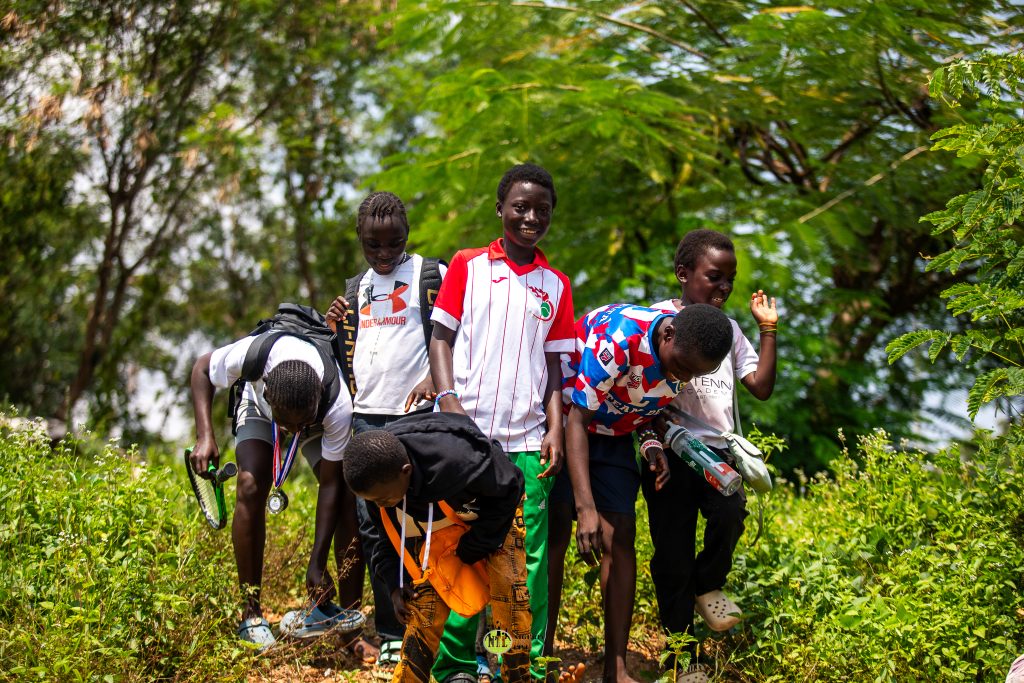
Across Nigeria, stories like these echo within the cracked courts and crowded training grounds of young athletes. They play barefoot sometimes, share rackets, and learn resilience in the face of scarcity. Yet, they rise each morning, driven by the same fire – to be seen, to be heard, and to one day, make their names known far beyond the country’s borders.
The journey to stardom may begin in a shanty, but for Salvation Alex and many others like her, it is never defined by it. Theirs is a story of grace under pressure, of dreams that refuse to die, and of talent born in the margins, destined for the world stage.
With every serve and every swing, Salvation isn’t just chasing victory; she is rewriting what it means to rise above circumstance – a living reminder that greatness can, indeed, come from the humblest of places.
From shanty walls to national courts, Salvation’s journey is proof that greatness does not wait for comfort – it grows from courage, persistence, and the stubborn will to dream.
